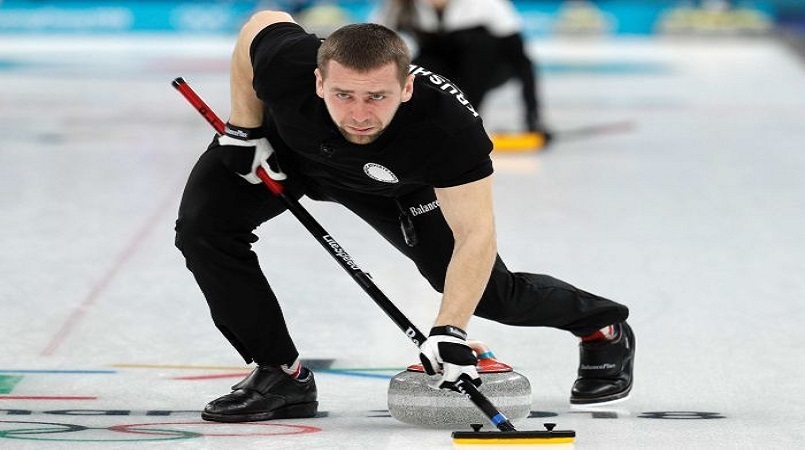
The Court of Arbitration for Sport has launched a doping procedure against Russian Olympic medallist Alexander Krushelnitsky, the court said in a statement on Monday.
The court said no hearing date had been fixed yet and no further information would be provided for the moment.
Krushelnitsky, who competes in curling, is suspected of testing positive for meldonium, a banned substance that increases blood flow and improves exercise capacity.
Krushelnitsky, who won bronze with his wife in mixed-doubles curling in Pyeongchang, has not responded to a request for comment.
Russia's curling federation has also launched an "emergency commission" to investigate the doping case, federation president Dmitry Svishchev told Reuters.
The Russian Olympic medallist left the Pyeongchang Winter Games on suspicion of doping.
He was awaiting the results of analysis of his B sample, expected later on Monday, before a violation could be confirmed, Russian Olympic delegation spokesman Konstantin Vybornov said.
Krushelnitsky won bronze with his wife in mixed-doubles curling at Pyeongchang.
Suspicions of a doping violation have shocked the Russian team and also the sport of curling, where steady hands and sharp eyes outweigh physical fitness.
The case could jeopardise Russia's efforts to draw a line under a years-long drug-cheating scandal.
Vybornov described the situation as "simply nonsense".
Svishchev also expressed shock, saying Russian curlers had been tested on January 22 before flying out to South Korea and the tests were negative.
"I have known these guys for many years. Only a crazy person takes banned substances before a competition, before the Olympics," Svishchev said on Sunday night when the news first broke.
"It's a strange story. It raises a lot of questions."
What is meldonium?
- Also known as Mildronate, it is used to treat angina and myocardial infarction
- Manufactured and marketed by Latvian company Grindeks
- Used in Russia and Lithuania, but not approved by USA's Food and Drug Administration
Leading sports doctor Dr Peter Brukner gives the rundown on meldonium and what it does to your body.
Russia has been accused of running a state-backed, systematic doping program for years, an allegation Moscow denies.
As a result, its athletes are competing at Pyeongchang as neutral "Olympic Athletes from Russia" (OAR).
The Russians had been hoping that a clean record at Pyeongchang would persuade the International Olympic Committee (IOC) to allow them to march at the Games closing ceremony on February 25 with the Russian flag and in national uniform.
The International Olympic Committee said it had taken note of the case without going into details.
It said that if the case were to be confirmed, it would be considered by its OAR Implementation panel, the body in charge of monitoring the OAR team's behaviour at the Games.
Krushelnitsky has not responded to a request for comment.
He and his wife, Anastasia Bryzgalova, won bronze in a game against Norway.
The Norwegians would take that medal if a doping violation is confirmed.
"I hope it's not true ... for the sport of curling," said Norwegian team skipper Thomas Ulsrud.
"If it's true I feel really sad for the Norwegian team who worked really hard and ended up in fourth place and just left for Norway and they aren't even here."
Reuters
